Today Current Affairs: 29th January 2022 for UPSC IAS exams, State PSC exams, SSC CGL, State SSC, RRB, Railways, Banking Exam & IBPS, etc
Table of Contents
Tiwa Community:
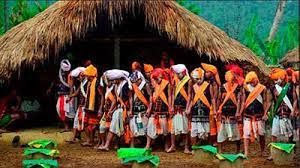
Almost 250 members of two extremist organisations in Assam laid down their arms before Chief Minister Himanta Biswa Sarma at a formal programme in Guwahati.
- The organisations are the Tiwa Liberation Army (TLA) and the United Gorkha People’s Organisation (UGPO).
- Formed in 2014 to cater to the aspirations of the Tiwa community, the TLA was active in Morigaon, Nagaon and West Karbi Anglong districts of central Assam.
- The UGPO, formed in 2007, was mostly active in the Bodoland Territorial Region and Biswanath district.
- Tiwa (Lalung) is an ethnic group mainly inhabiting the states of Assam and Meghalaya in north-eastern India.
- They are also found in some areas of Arunachal Pradesh, Manipur and Nagaland.
- They are recognized as a Scheduled tribe within the State of Assam.
- They were known as Lalungs in the Assamese Buranjis and in Colonial literature and in the Constitution of India, though members of the group prefer to call themselves Tiwa (meaning “the people who were lifted from below”).
Spot-Billed Pelicans:

A nematode infestation has led to mass mortality of spot-billed pelicans (Pelicanus philippensis) at Telineelapuram Important Bird Area (IBA) in Naupada swamp of Srikakulam district in Andhra Pradesh.
- Over 150 spot-billed pelicans have succumbed to the infestation since December. Only adult birds have succumbed to the infestation till date.
- Until now, in South India, the Telineelapuram IBA is the prime winter sojourn for the spot-billed pelican for breeding. The same IBA is also a breeding habitat for the painted stork (Mycteria leucocephala).
- The nematode infestation would not spread from one species to another species as per the studies carried out by the experts in Karnataka State.
- The spot-billed pelican is capable of hunting huge fish from the water bodies and swamps and thus, it is vulnerable to infestation.
- Thousands of spot-billed pelicans and a few hundred painted storks migrate from the Siberian region to breed in the Telineelapuram IBA and a majority of them prefer to stay here instead of going back home.
A sub-variant Of Omicron:
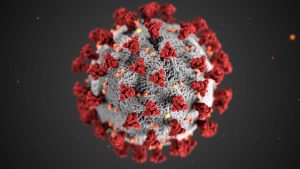
In the last couple of weeks, there has been a noticeable increase in the discovery of BA.2 sub-variant of Omicron from several countries, leading to fresh worries about the possibility of another surge in cases.
- Last week, the UK Health Security Agency flagged this sub-variant and designated it as a ‘variant under investigation’.
- This sub-variant has been present in substantial numbers in India as well, but India is not amongst the countries where the recent increase has been noticed.
A sub-variant of Omicron:
- It is one of the several sub-variants of the Omicron which has spread rapidly across the world since November.
- The Omicron name was given to the B.1.1.529 lineage after it was designated as a variant of concern.
- Later, it was found that this lineage had small variations of its own, and the three most common were named B.1.1.529.1, B.1.1.529.2, and B.1.1.529.3. For ease of reference, however, these sub-lineages were later re-classified as BA.1, BA.2 and BA.3.
- The Omicron sub-variant that has been most common in circulation till now is BA.1. This continues to be the case even now, though the proportion of BA.2 is on the rise.
Swachhata Start-Up Challenge:
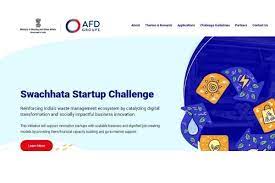
Ministry of Housing & Urban Affairs (MoHUA), Government of India, in partnership with Department of Promotion of Industry and Internal Trade (DPIIT) and Agence Française de Développement (AFD) launched the Swachhata Start-Up Challenge.
- It aims to provide an impetus to innovative start-ups to come forward and drive catalytic transformation in the sanitation and waste management sector.
- The Challenge seeks to promote an enabling environment for enterprise development under Swachh Bharat Mission-Urban 2.0 (SBM-U 2.0).
- The Swachhata Start-Up Challenge launched today aims to capitalise on the start-up movement by providing opportunities for entrepreneurship to young innovators to create socially impactful and market ready business solutions.
- The Challenge, which is open to start-ups registered in India and French actors collaborating with an Indian start-up (as a joint venture), invites solutions across four thematic areas viz. (i) social inclusion, (ii) zero dump (solid waste management), (iii)plastic waste management and(iv)transparency through digital enablement.
India-Central Asia Summit
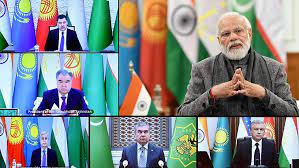
Prime Minister Narendra Modi hosted the first India-Central Asia Summit in virtual format on 27 January 2022, which was attended by Presidents of the Republic of Kazakhstan, Kyrgyz Republic, Republic of Tajikistan, Turkmenistan and Republic of Uzbekistan.
- This first India-Central Asia coincided with the 30th anniversary of establishment of diplomatic relations between India and Central Asian countries.
- During the Summit, the Leaders agreed to institutionalize the Summit mechanism by deciding to hold it every 2 years.
- They also agreed on regular meetings of Foreign Ministers, Trade Ministers, Culture Ministers and Secretaries of the Security Council to prepare the groundwork for the Summit meetings.
- An India-Central Asia Secretariat in New Delhi would be set up to support the new mechanism.
- The Leaders discussed far-reaching proposals to further cooperation in areas of trade and connectivity, development cooperation, defence and security and, in particular, on cultural and people to people contacts.
- These included a Round-Table on Energy and Connectivity; Joint Working Groups at senior official level on Afghanistan and use of Chabahar Port; showcasing of Buddhist exhibitions in Central Asian countries and commissioning of an India-Central Asia dictionary of common words, joint counter-terrorism exercises, visit of 100 member youth delegation annually from Central Asian countries to India and special courses for Central Asian diplomats.
Bad Bank:
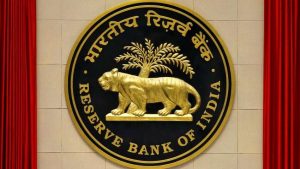
The Reserve Bank of India’s (RBI’s) approval for the implementation of the proposal for setting up a ‘Bad Bank’ is still pending.
- In September 2021, the Union Cabinet approved the Rs. 30,600 crore guarantee to back Security Receipts issued by National Asset Reconstruction Company Limited (NARCL) for acquiring stressed loan assets.
NARCL & IDRCL:
- The NARCL has been set up and issued a license by the RBI to conduct business as an Asset Reconstruction Company (ARC).
- NARCL will acquire stressed assets worth about Rs 2 lakh crore from various commercial banks in different phases.
- Public Sector Banks (PSBs) will maintain 51% ownership in NARCL.
- Simultaneously, a separate company has been set up to function as an Asset Management Company, named India Debt Resolution Company Limited (IDRCL), which will provide management and resolution of assets and also help in the operational aspects, relating to price discovery and aim at evolving the best possible recovery and the resolution process.
- PSBs and Public Financial Institutes (FIs) will hold a maximum of 49% stake in IDRCL. The remaining 51% stake will be with private-sector lenders.
- The NARCL is majorly owned by public sector banks with 51% ownership but in the case of the IDRCL, 51% shares are in private hands.
- The NARCL will first purchase bad loans from banks.
- It will pay 15% of the agreed price in cash and the remaining 85% will be in the form of “Security Receipts”.
- When the assets are sold, with the help of IDRCL, the commercial banks will be paid back the rest.
- If the bad bank is unable to sell the bad loan, or has to sell it at a loss, then the government guarantee will be invoked.
- The difference between what the commercial bank was supposed to get and what the bad bank was able to raise will be paid from the Rs 30,600 crore that has been provided by the government.
- This guarantee is extended for a period of five years.
Bad Bank:
- The bad bank is an ARC or an Asset Management Company (AMC) that takes over the bad loans of commercial banks, manages them and finally recovers the money over a period of time.
- The bad bank is not involved in lending and taking deposits, but helps commercial banks clean up their balance sheets and resolve bad loans.
- The takeover of bad loans is normally below the book value of the loan and the bad bank tries to recover as much as possible subsequently.
Chakmas And Hajongs Communities:

The National Human Rights Commission (NHRC) in its order directed Ministry of Home Affairs and Arunachal Pradesh to submit action taken report within six weeks against alledged racial profiling and relocation of the Chakmas and Hajongs from the State.
- Also both the authorities were directed to “ensure that human rights of the Chakmas and Hajongs are protected by all the ways”.
- Members of the two communities have allegedly been victims of hate crime, police atrocities and denial of rights and beneficiary programmes.
- In 2015, the Supreme Court directed the State to grant them citizenship, but this had not yet been implemented.
- In a judgment in 1996, the Court had stated that the “life and personal liberty of every Chakma residing within the State shall be protected”.
- In light of these orders and given that most of the Chakma/Hajong community members were born in the State and have been living peacefully, the Arunachal Pradesh Chief Minister’s announcement, in August 2021, that they would be relocated outside the State and that steps would be taken for a “census” of the communities was clearly unwarranted.
- After that Chakma Development Foundation of India (CDFI) requested urgent intervention of the NHRC against racial profiling of 65,000 Chakma and Hajong tribals of Arunachal Pradesh through illegal census which was scheduled to commence from 31st December, 2021 (later plan of census was dropped) for their deportation / expulsion/ relocation from the State.
- Racial profiling is government or police activity that involves using people’s racial and cultural characteristics to identify people to investigate.
Chakmas and Hajongs:
- Mizoram and Tripura have a sizeable population of the Buddhist Chakmas while the Hindu Hajongs mostly inhabit the Garo Hills of Meghalaya and adjoining areas of Assam.
- The Chakmas and Hajongs of Arunachal Pradesh are migrants from the Chittagong Hill Tracts of erstwhile East Pakistan, now Bangladesh.
- Displaced by the Kaptai dam on the Karnaphuli River in the 1960s, they sought asylum in India and were settled in relief camps in the southern and south-eastern parts of Arunachal Pradesh from 1964 to 1969.
- A majority of them live in the Changlang district of the State (Arunachal Pradesh) today.
Tipu Sultan:

Naming a playground on Tipu Sultan in Mumbai sparked a controversy.
- Born in November 1750, Tipu Sultan was Haidar Ali’s son and a great warrior, also known as the Tiger of Mysore.
- He was a well educated man fluent in Arabic, Persian, Kanarese and Urdu.
- Mysore had grown in strength under the leadership of powerful rulers like Haidar Ali (ruled from 1761 to 1782) and his famous son Tipu Sultan (ruled from 1782 to 1799).
- Tipu introduced a number of administrative innovations during his rule, including his coinage, a new Mauludi lunisolar calendar, and a new land revenue system which initiated the growth of Mysore silk industry.
- Embracing western military methods like artillery and rockets alongside traditional Indian weapons including war elephants, he ensured his forces could overwhelm his Indian rivals and match the British armies sent against him.
Regional Rapid Transit System (RRTS):

The officials of Regional Rapid Transit System (RRTS) estimated that RRTS will reduce CO2 emissions by taking around 1.5 lakh private vehicles off the road.
- The corridor will start from Sarai Kale Khan in Delhi, pass through Ghaziabad, and reach Modipuram in Meerut (Uttar Pradesh).
- The RRTS, the first of its kind in the national capital, will run at a speed of 100 km per hour and commuters will reach Meerut in 50-60 minutes.
- The Planning Commission formed a Task Force in 2005 under the Chairmanship of Secretary, Ministry of Urban Development (MoUD) to develop a multi modal transit system for Delhi National Capital Region (NCR).
- This was included in the Integrated Transport Plan for NCR 2032 with special emphasis on Regional Rapid Transit System (RRTS) connecting regional centres.
- The Task Force identified 8 corridors and prioritised three corridors namely Delhi-Meerut, Delhi-Panipat and Delhi- Alwar for implementation.
About RRTS:
- RRTS is a new, dedicated, high speed, high capacity, comfortable commuter service connecting regional nodes in NCR.
- RRTS is different from conventional Railway as it will provide reliable, high frequency, point to point regional travel at high speed along dedicated path way.
- RRTS is different from metro as it caters to passengers looking to travel a relatively longer distance with fewer stops and at higher speed.
World Trade Organization (WTO):

The European Union has launched a case against Beijing at the World Trade Organization (WTO) for targeting Lithuania over its stance on Taiwan.
- Lithuania made waves in July when it allowed Taiwan to open a diplomatic outpost in Vilnius.
- The move outraged Beijing, which does not recognise Taiwan as a state and considers the self-ruled democratic island a rebellious territory of the mainland.
- Lithuania is one of three Baltic states and lies on the eastern shore of the Baltic Sea.
- Lithuania shares land borders with Latvia to the north, Belarus to the east and south, Poland to the south, and Kaliningrad Oblast of Russia to the southwest.
- Resolving trade disputes is one of the core activities of the WTO.
- A dispute arises when a member government believes another member government is violating an agreement or a commitment that it has made in the WTO.
- The WTO has one of the most active international dispute settlement mechanisms in the world. Since 1995, 609 disputes have been brought to the WTO and over 350 rulings have been issued.
Air India Now Formally Handed Over To Tata Group:

The Union government has transferred its shares in Air India, along with control and management, to Tata Sons subsidiary, Talace, ending a disinvestment process that started five years ago.
- Tatas will get Air India’s fleet of 141 planes, along with ownership of iconic Brands like Air India, Indian Airlines & the Maharajah.
- As many as 13,500 permanent and contractual employees will also move to the Tata fold and have to be retained at least for one year.
- The Tata Group now owns three airlines along with Vistara in which it has a 51% stake and AirAsia India where it owns 84% stake.
- The three airlines together account for 24% of the market share in the aviation sector.
- The airline was founded in 1932, when JRD Tata piloted the inaugural flight between Karachi and Bombay.
- It was then known as Tata Airlines.
- The government acquired a 49% stake in the carrier in 1948, followed by its nationalisation in 1953.
- The airline was renamed as Air India International, and domestic flights were transferred to Indian Airlines.
- In 2007, the two airlines were merged. This along with a massive aircraft order a few years earlier plunged the new entity into debt as it failed to earn profit ever since.




